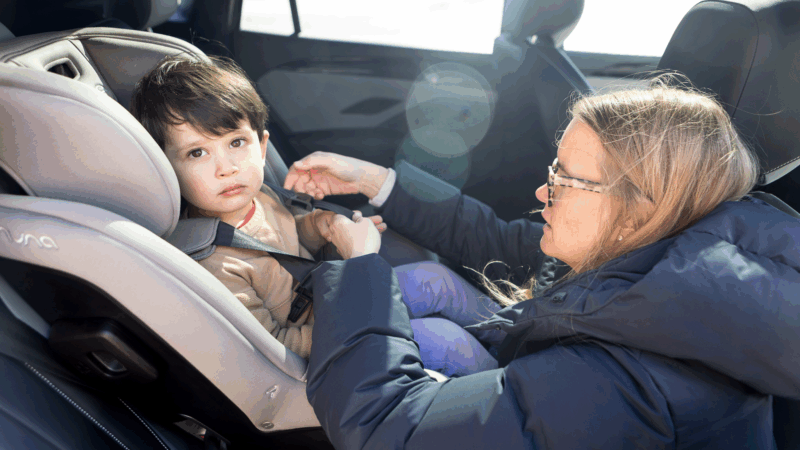Birmingham Could Be Two Weeks Away From NYC COVID-19 Rates
As of Wednesday morning, Alabama has confirmed about 1,000 cases of the coronavirus. Those numbers are nowhere near hot spots such as New York, Louisiana or Washington, but public health officials here are expecting things to get worse. For perspective on how the coronavirus outbreak looks around Birmingham, WBHM’s Andrew Yeager spoke with Dr. Jeanne Marrazzo, director of the division of infectious diseases at the University of Alabama at Birmingham.
Marrazzo says Alabama lags other areas of the country in terms of how the virus has spread. She estimates Birmingham is about two weeks behind New York City, where field hospitals are opening in Central Park to handle COVID-19 patients, and about six weeks behind Seattle, where data indicates the pandemic may be slowing.
“That sort of gives us a little bit of a window to hope and pray that the social distancing measures that were implemented in some of our cities … might actually be able to blunt the peak of the infections that we would see otherwise,” Marrazzo says.
She says it’s open to question whether Alabama can keep the infection rate low enough to prevent hospitals from being overwhelmed. Marrazzo recently heard stories from the hardest hit hospitals of as many as 16 people an hour being placed on ventilators.
“Will we avoid that? I am desperately hoping so,” Marrazzo says.
Numbers released from UAB Hospital Tuesday show a leveling off of coronavirus patients over the last 4 days.

She says it’s a glimmer of hope and possibly a sign that social distancing is having an effect.
But Marrazzo cautions the virus remains difficult to defeat. A report released Tuesday from the Centers for Disease Control and Prevention confirms there is asymptomatic transmission, meaning people who are infected with the coronavirus but don’t show symptoms are spreading it.
“The concern I have is that this may be a little bit of a lull. Maybe we’re buying some time but that we will see an increase in people coming into the hospital,” Marrazzo says.
She says another concern, which she doesn’t believe gets enough attention, is that COVID-19 strikes those with chronic illness hard, especially in death rates. Those conditions include diabetes, emphysema, asthma, cardiovascular disease and obesity. The Deep South has higher rates of those diseases.
“That could be a powder keg for us that I really hope we can avoid,” Marrazzo says.
Gov. Kay Ivey closed all nonessential businesses statewide Friday to prevent the spread of the coronavirus, but some criticized her for not issuing a “stay-a-home” order as some governors have. The city of Birmingham issued one as well. Marrazzo says Ivey’s policy is very close to a “stay-at-home” order and sends a strong message.
“I think getting to that point for the state was a huge win, particularly when you look at what’s happening in Florida,” Marrazzo says.
Florida Gov. Ron DeSantis has resisted implementing stricter measures to fight the coronavirus and has not closed beaches statewide. Florida also has a large elderly population, which is more vulnerable to COVID-19.
“It’s not perfect,” Marrazzo says. “Maybe it’s not as rigorous as we would have liked, but I think it’s a huge step in the right direction and I’m really hopeful it’s going to make a difference.”
Parents, are you sure your kid’s car seat is installed right? Here’s how to know
In this visual guide, certified car seat experts walk through common installation mistakes and how to fix them. Learn what a secure car seat base and a tightly fastened tether look like and more.
Trump announces ‘major combat operations’ in Iran
Israel and the U.S. have launched strikes against Iran, with explosions reported in Tehran and air raid sirens sounding across Israel.
Trump says he is ‘not happy’ with the Iran nuclear talks but indicates he’ll give them more time
U.S. President Donald Trump said Friday he's "not happy" with the latest talks over Iran's nuclear program but indicated he would give negotiators more time to reach a deal to avert another war in the Middle East.
Bill Clinton says he ‘did nothing wrong’ with Epstein as he faced grilling over their relationship
Former President Bill Clinton told members of Congress on Friday that he "did nothing wrong" in his relationship with Jeffrey Epstein and saw no signs of Epstein's sexual abuse as he faced hours of grilling from lawmakers over his connections to the disgraced financier from more than two decades ago.
How the federal government is painting immigrants as criminals on social media
Experts say this kind of media campaign is unprecedented and paints a distorted picture of immigrants and crime
Pentagon puts Scouts ‘on notice’ over DEI and girl-centered policies
After threatening to sever ties with the organization formerly known as the Boy Scouts, Defense Secretary Hegseth announced a 6-month reprieve







